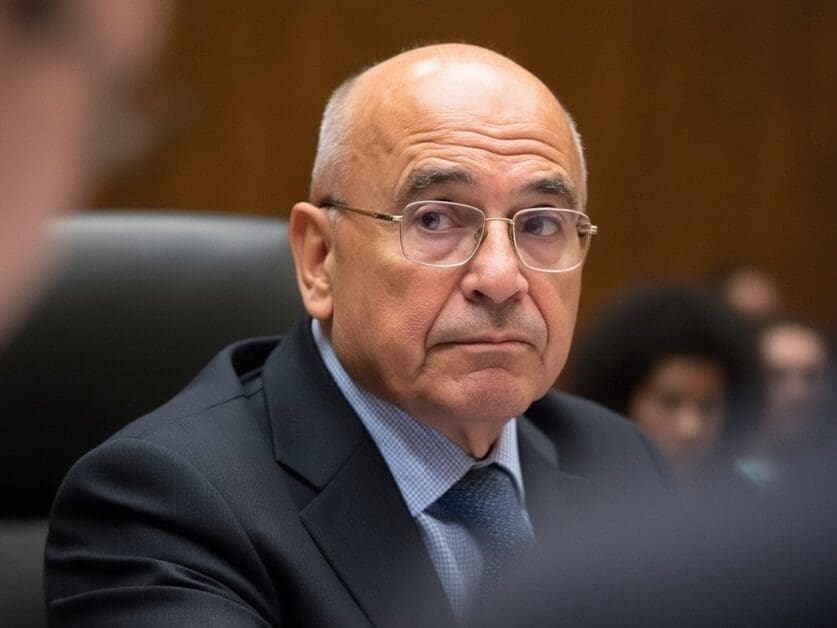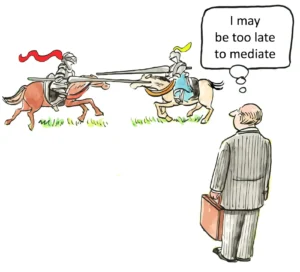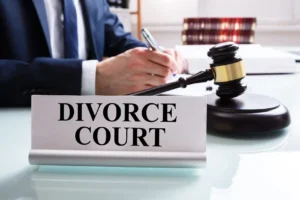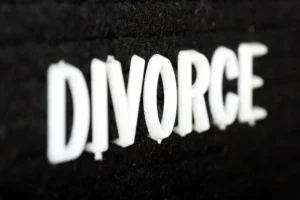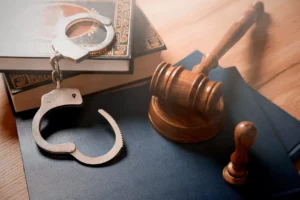Giuliani Legal Team Shake-up: New Attorney Criticizes Previous Counsel Before NY Trial
In a dramatic turn of events, Rudy Giuliani’s legal defense has undergone a significant shake-up, with his new attorney publicly criticizing the former counsel just days before a crucial New York trial. This unexpected development has sent shockwaves through the legal community and raised questions about the former New York City mayor’s strategy in facing multiple legal challenges.
The legal team shake-up comes at a critical juncture for Giuliani, who is embroiled in several high-profile cases, including a $146 million defamation judgment and potential contempt charges. The sudden change in legal representation has left many speculating about the reasons behind the split and the potential impact on Giuliani’s defense.
Giuliani’s new attorney, Joseph Cammarata, wasted no time in distancing himself from the previous legal team’s approach. In a bold move, Cammarata criticized the former counsel’s handling of the case, particularly their failure to meet crucial deadlines and comply with court orders. This public rebuke of the previous attorneys’ work is unusual in legal circles and has raised eyebrows among legal professionals.
The attorney change comes in the wake of a series of setbacks for Giuliani, including missed deadlines for asset disclosure and the surrender of personal property to satisfy the defamation judgment. The former mayor’s financial situation has become increasingly precarious, with Giuliani claiming that he lacks access to cash and credit cards due to the ongoing legal proceedings.
The criticism of the previous legal team by the new attorney highlights the complex challenges Giuliani faces in mounting an effective defense. Cammarata’s statements suggest a significant shift in legal strategy, potentially signaling a more aggressive approach to defending Giuliani against the numerous allegations he faces.
One of the key issues at the center of Giuliani’s legal troubles is the defamation case brought by two Georgia election workers, Ruby Freeman and Wandrea’ Moss. The $146 million judgment against Giuliani stems from false accusations he made about their involvement in alleged election fraud during the 2020 presidential election. This case has not only damaged Giuliani’s reputation but has also placed him in severe financial jeopardy.
The legal team shake-up has brought attention to the broader issue of attorney-client relationships in high-profile cases. The decision to change counsel mid-case is not taken lightly, as it can significantly impact the continuity and effectiveness of a legal defense. In Giuliani’s case, the public criticism of the previous attorneys adds an extra layer of complexity to an already challenging situation.
The new legal team’s approach appears to be more confrontational, with Cammarata pushing back against what he describes as overly broad discovery requests from the plaintiffs. This shift in tactics could indicate a more aggressive defense strategy, potentially aimed at limiting Giuliani’s exposure in the ongoing legal battles.
However, the change in legal representation has not been without its own challenges. Judge Lewis Liman expressed concern over the timing of the attorney change and its potential impact on the upcoming trial dates. The judge’s refusal to postpone the January 16 trial related to Giuliani’s Palm Beach condominium underscores the court’s impatience with further delays in the proceedings.
The legal team shake-up also brings to light the intricate relationship between legal strategy and public perception. Giuliani, once known as “America’s Mayor” for his leadership during the September 11 attacks, now finds himself fighting to preserve both his legal standing and his public image. The public criticism of his former attorneys by the new legal team adds another layer of complexity to Giuliani’s efforts to manage his public persona during these legal challenges.
The case has also drawn attention to the issue of asset forfeiture in high-stakes legal battles. Giuliani’s struggle to surrender nearly $11 million in personal assets as an initial payment towards the $148 million judgment has become a central point of contention. The former mayor’s claims of financial hardship, including his statement that he lacks access to a car or credit cards, have been met with skepticism by the court and the plaintiffs’ attorneys.
This situation raises important questions about the balance between satisfying legal judgments and maintaining a defendant’s basic financial stability. It also highlights the potential long-term consequences of defamation cases, particularly for public figures who may find themselves facing substantial financial penalties for their statements.
The legal team shake-up in Giuliani’s case also touches on the broader issue of legal ethics and professional responsibility. The previous attorneys’ decision to withdraw from the case, citing unspecified ethical concerns, adds an intriguing layer to the already complex legal narrative. This aspect of the case serves as a reminder of the ethical dilemmas that attorneys may face when representing high-profile clients in contentious legal battles.
Another significant aspect of this case is its intersection with political law and the ongoing fallout from the 2020 election. Giuliani’s legal troubles stem largely from his role in promoting unsubstantiated claims of election fraud, a strategy that has backfired spectacularly in the form of defamation lawsuits and potential criminal charges. This case serves as a cautionary tale about the legal risks associated with making unfounded allegations in the political arena.
The legal team shake-up also highlights the challenges of managing multiple legal fronts simultaneously. Giuliani is not only facing the defamation case in New York but is also a defendant in the Georgia election interference case and potentially faces contempt charges in Washington. This multi-jurisdictional legal battle requires a coordinated defense strategy, something that may have been a factor in the decision to change legal representation.
The case also touches on issues of judicial discretion and case management in high-profile litigation. Judge Liman’s firm stance on maintaining the trial schedule, despite the change in Giuliani’s legal representation, demonstrates the court’s commitment to moving the proceedings forward efficiently. This approach reflects the broader judicial concern with balancing the rights of defendants with the need for timely resolution of legal disputes.
The public nature of Giuliani’s legal troubles and the legal team shake-up also raises questions about the impact of media coverage on high-profile cases. The intense scrutiny of every development in the case, including the change in legal representation, can influence public opinion and potentially affect the legal proceedings themselves. This intersection of law and media highlights the unique challenges faced by attorneys representing public figures in high-stakes litigation.
Another aspect of this case that merits attention is the role of discovery in complex litigation. The plaintiffs’ attorneys have expressed frustration with Giuliani’s alleged lack of cooperation in providing requested information, particularly regarding the location and status of his assets. This situation underscores the importance of discovery in civil litigation and the potential consequences of failing to comply with discovery orders.
The legal team shake-up also brings to the forefront the issue of attorney fees in protracted legal battles. Giuliani’s financial difficulties, as claimed in court, raise questions about his ability to pay for continued legal representation. This situation highlights the financial strain that prolonged litigation can place on defendants, even those who were once in positions of power and influence.
The case also touches on the intersection of civil and criminal law, particularly given Giuliani’s potential exposure to criminal charges related to election interference. The need to coordinate defense strategies across civil and criminal matters adds another layer of complexity to the legal team’s responsibilities and may have played a role in the decision to change counsel.
Another important aspect of this case is its potential impact on legal precedent, particularly in the realm of defamation law and the consequences for making false statements about election officials. The outcome of Giuliani’s legal battles could influence how similar cases are approached in the future, potentially setting new standards for liability in cases involving public statements about election integrity.
The legal team shake-up also raises questions about trial preparation and strategy. With a new legal team taking over so close to scheduled trial dates, there are concerns about their ability to fully prepare and present an effective defense. This situation highlights the challenges of balancing thorough preparation with the need to adhere to court-imposed deadlines.
The case also touches on issues of professional reputation in the legal field. The public criticism of the previous legal team by the new attorneys is unusual and could have implications for the professional standing of all involved. This aspect of the case serves as a reminder of the delicate balance attorneys must strike between zealous advocacy for their clients and maintaining professional courtesy towards colleagues.
Another significant aspect of this case is its potential impact on public trust in the legal system. The high-profile nature of the defendant and the serious allegations involved make this case a focal point for public scrutiny of the justice system. The outcome and handling of the case could influence public perception of the fairness and effectiveness of the legal process in dealing with powerful figures.
The legal team shake-up also highlights the importance of client communication in complex litigation. The apparent disconnect between Giuliani and his previous legal team, as evidenced by the sudden withdrawal and subsequent criticism, underscores the need for clear and consistent communication between attorneys and their clients, especially in high-stakes cases.
This case also raises questions about the long-term career implications for attorneys involved in high-profile, politically charged litigation. The decision to take on or withdraw from such cases can have significant impacts on an attorney’s professional trajectory, potentially influencing future client relationships and career opportunities.
The Giuliani case and its legal team shake-up also touch on the broader issue of accountability for public figures. The legal consequences Giuliani faces for his statements and actions serve as a reminder that even those who once held positions of significant power and influence are not above the law.
Another aspect worth considering is the impact of this case on election law and the legal framework surrounding challenges to election results. The severe consequences Giuliani faces for his role in promoting unsubstantiated claims of election fraud could influence how future election disputes are handled and litigated.
The case also highlights the intersection of law and politics, particularly in the context of post-election litigation. The legal challenges Giuliani faces stem directly from his political activities, serving as a stark reminder of the potential legal risks associated with engaging in aggressive political advocacy.
In conclusion, the legal team shake-up in Rudy Giuliani’s case represents more than just a change in attorneys. It reflects the complex interplay of legal strategy, professional ethics, public perception, and the high stakes involved in litigating politically charged cases. As the legal proceedings continue to unfold, they will undoubtedly provide valuable insights into the challenges of mounting a defense in high-profile, multi-faceted litigation, while also potentially shaping the landscape of defamation law, election law, and the legal consequences of public statements by political figures.
Sources:
- https://www.nytimes.com/
- https://www.law.com/
- https://news.bloomberglaw.com/
- https://www.reuters.com/legal/
Citations:
https://newrepublic.com/post/188420/rudy-giuliani-lawyers-ditch-him-defamation-case
https://laterallink.com/shifting-dynamics-in-law-the-2024-guide-to-navigating-legal-career-advances/
https://localranking.com/blog/keywords-for-lawyers
https://news.bloomberglaw.com/litigation/giuliani-lawyers-approved-to-exit-146-million-defamation-suit
https://nationaljurist.com/national-jurist/insight/hot-and-emerging-practice-areas/
https://www.nytimes.com/2024/11/26/nyregion/rudy-giuliani-defamation-hearing-lawyers.html
